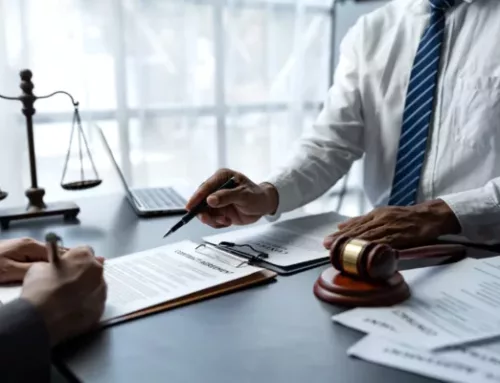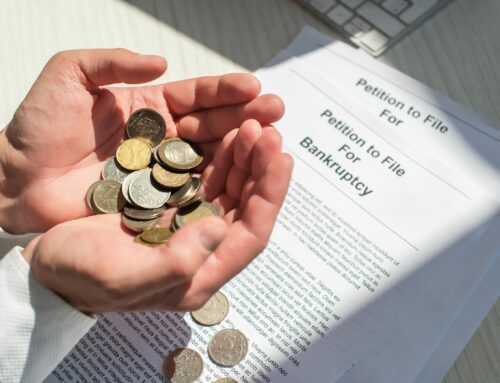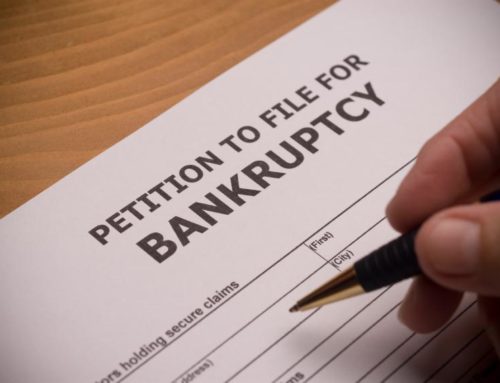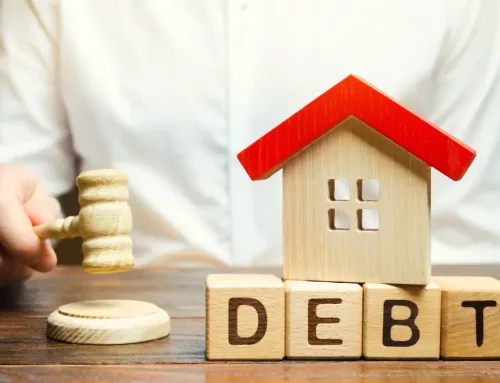The Bankruptcy Process in Wheeling, West Virginia

Going bankrupt is perhaps one of man’s greatest fears. Being deep in debt and other financial problems brings about stress and suffering. When drowned in debt, we worry that creditors may file legal cases and cause further strain on finances, including home foreclosure, vehicle repossession, or wage seizure. However, before considering filing for bankruptcy, you must have considered all other debt-relief options such as loan consolidation, getting a debt counselor, and managing your finances.
Before making rash decisions, it is essential to weigh the options. Bankruptcy attorneys in West Virginia such as Thomas E. McEntire offer free consultations so you can evaluate if filing for bankruptcy is your best way to move forward. Call them today at 304-313-4095.
If granted with a bankruptcy discharge, this will severely dent your credit scores and will be part of your credit history for a decade, at most. Nonetheless, if you are already in the red and your credit score is already dire, then much of the damage has already been done. Rather than prolonging the agony by constantly trying and failing to repay, filing for bankruptcy could be your only way to rebuild your credit score and move towards financial freedom.
What is Bankruptcy?
The United States Courts define bankruptcy as “a legal procedure for dealing with debt problems of individuals and businesses; specifically, a case filed under one of the chapters of title 11 of the United States Code (the Bankruptcy Code)” or what is also called the federal bankruptcy law.
The US Courts add that “Bankruptcy helps people who can no longer pay their debts get a fresh start by liquidating assets to pay their debts or by creating a repayment plan. Bankruptcy laws also protect financially troubled businesses. This section explains the bankruptcy process and laws.”
As with any situation involving the law and courts, the best way to file for bankruptcy is to have competent bankruptcy attorneys by your side. They can guide you navigate this complex legal process so you can enjoy the best option the law provides in cases like this.
The filing of bankruptcy cases is done in federal courts. They are handled under the terms and stipulations under the US Bankruptcy Code. The different types of bankruptcies that you may file are commonly referred to the specific chapter they are outlined in under law, such as:
- Chapter 7 and Chapter 13 bankruptcy – Individuals may file for these types of bankruptcies depending on the circumstances they are in
- Chapter 9 – Cities, villages, and school districts may file for this type of bankruptcy for reorganization
- Chapter 7 and Chapter 11 – these types of bankruptcies may be filed by businesses who wish to liquidate for the former and reorganize for the latter
There are other types of bankruptcies that may be filed. Your legal counsel can give you an in-depth explanation and recommendation of your best option.
Here, we discuss the two types of bankruptcies for individuals: Chapter 7 and Chapter 13 Bankruptcies.
- Chapter 7 Bankruptcy provides for “liquidation” or the sale of a debtor’s non-exempt property and the distribution of the proceeds to creditors. This type of bankruptcy is available for individuals and couples (although less often, for business also) who have little or no assets.
- Chapter 13 Bankruptcy provides for the adjustment of debts made by an individual receiving consistent and regular income. Chapter 13 allows a debtor to keep property and craft a payment plan covering three to five years. This type of bankruptcy is for individuals and couples who earn more than qualified for a Chapter 7 Bankruptcy.
Means Test
The US Bankruptcy Code Section 701(b)(2) provides for the conduct of a means test that will determine whether “an individual debtor’s chapter 7 filing is presumed to be an abuse of the Bankruptcy Code. Abuse is presumed if the debtor’s aggregate current monthly income over five years, net of certain statutorily allowed expenses is more than (i) $12,850, or (ii) 25% of the debtor’s nonpriority unsecured debt, as long as that amount is at least $7,700. The debtor may rebut a presumption of abuse only by a showing of special circumstances that justify additional expenses or adjustments of current monthly income.”
If proven, the bankruptcy case will be dismissed or converted, usually to a Chapter 13 Bankruptcy.
In West Virginia, if your income falls below the median income level of more or less $65,000 (for a family of four ) within the six months before the bankruptcy filing, you are eligible to file a Chapter 7 Bankruptcy.
Bankruptcy Exemptions in West Virginia
The West Virginia exemption system stipulates which assets you may retain and which assets you may lose in a bankruptcy case.
Assets protected from creditors are called exempt assets. Otherwise, they are non-exempt assets.
Some of the allowed exempt assets in West Virginia are:
- Homestead – West Virginia laws will enable you to retain the equity of your home of up to $25,000 for individuals and $50,000 for couples who file for joint bankruptcy.
- Wildcard – West Virginia allows you up to $800 exemption of any property. If you opt-out of the homestead exemption, you can apply the $25,000 value to any personal property on top of the wildcard exemption.
- Motor Vehicle – A $2,400 equity on a motor vehicle is also allowed.
- Other property – West Virginia also provides exemptions to other properties up to a specific value. These include household furnishings, appliances, clothes, jewelry, tools of the trade, pension, and retirement, an insurance benefit, public benefit, child support.
The Bankruptcy Filing Process
Here’s what to expect when you file for bankruptcy in West Virginia.
- Debtors file a bankruptcy petition, a statement of assets and liabilities, and a list of all creditors and the value of what is owed with the West Virginia Bankruptcy Court. Creditors are notified that a debtor has filed for a bankruptcy petition.
- It is essential to exempt your property carefully. The courts will appoint a bankruptcy trustee who will serve as the bankruptcy estate representative and exercise statutory powers to benefit unsecured creditors. Under the supervision of the bankruptcy administrator, the trustee will review the bankruptcy petition. For Chapter 7, the trustee liquidates property of the bankruptcy estate. In contrast, for Chapter 13, the trustee will also oversee the debtor’s repayment plan, receive payments from the debtor and disburse accordingly to the creditors.
- Chapter 7 bankruptcy provides you with the opportunity to dispense unsecured debts. Examples of unsecured debts are credit card debt and medical debt. To repay some if not all of the unsecured debts, non-exempt assets such as items with high value, second homes, cash, stocks, and bonds will be liquidated.
On a case-to-case basis, individuals or couples who own only exempt assets are not liable to pay unsecured debt and other financial obligations.
- The bankruptcy case might be messy as creditors will not take the bankruptcy lightly. They will understandably fight for the payment of debts owed to them. Judicial proceedings in a bankruptcy court are conducted similarly with civil cases in district courts. They may involve pretrial, adversary, settlement, bankruptcy hearings, and trial, especially if disputes arise. An aggressive bankruptcy attorney can help, as they will also fight to protect your best interests.
- The bankruptcy discharge is the release of a debtor from personal liability for certain dischargeable debts outlined in the Bankruptcy Code. The discharge prevents the creditors from taking any action against the debtor to collect the debts.
The Bankruptcy process, when done correctly, can give you a fresh start in life. Although bankruptcy can decimate credit scores and take some or most of your property, it can also eliminate or restructure your debts. This opportunity should be your leverage in building your credit from the ground up.
Talk to Wheeling Bankruptcy Lawyers
Your chance of starting anew starts with your choice of legal representation. With our Wheeling bankruptcy law firm at your side, you can take steps toward effective debt relief solutions.
Our firm has almost 30 years of experience helping clients resolve their cases.
If you want to learn more about how Thomas E. McIntire and Associates can help you be free of debt once and for all, call our offices at 304-313-4094 as soon as possible.





